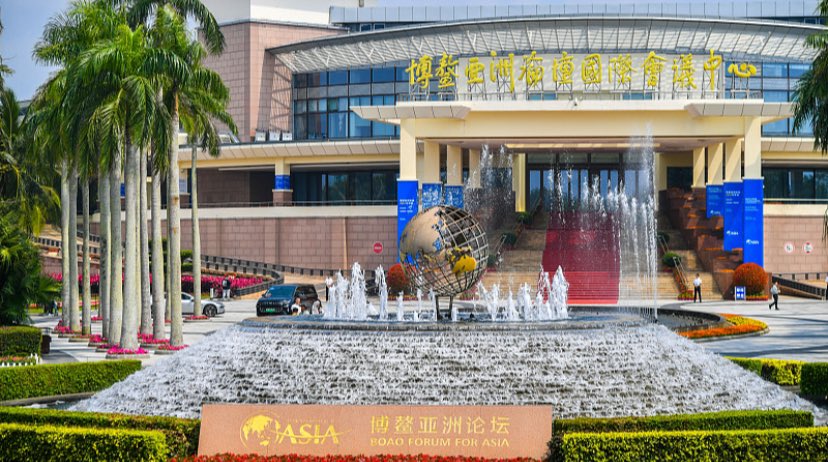2024 BOAO FORUM: ACCELERATING NET-ZERO TRANSITION IN ASIA

Editor’s note: Robert B. Weisenmiller, a special commentator on current affairs for CGTN, is a research affiliate at the California-China Climate Institute, University of California, Berkeley, and a former chair of the California Energy Commission. The article reflects the author’s opinions and not necessarily the views of CGTN. The Boao Forum for Asia (BFA) Annual Conference is being held in Boao, China’s southern province of Hainan from March 26 to 29. Its focus will be “Asia and the World: Common Challenges, Shared Responsibilities.”
BFA Secretary General Li Baodong said this year’s BFA Annual Forum will focus on how the international community can work together to address challenges in the areas of four major topics: the global economy, social development, international cooperation and scientific and technological innovation. National leaders, governmental officials, heads of international organizations, businesspeople, experts in various fields and the press will be invited from at least the 29 member countries of the BFA, which consists of most Asian countries. The first BFA meeting was held in Boao in February 2001.
Now, it is a unique opportunity for Asian countries to review and discuss common problems and develop common action plans and policies. On March 18, a launching ceremony was held in Boao for the “Boao Nearly Zero Carbon Demonstration Zone” by the Ministry of Housing and Urban-Rural Development and the Hainan provincial government. The project aims to showcase China’s green and low-carbon technologies and practices to the world in a demonstration zone focusing on “almost zero” emissions technologies, such as photovoltaics, wind energy collectors, energy storage systems, and an organic waste treatment project.
Located within this demonstration zone are the renovated BFA International Conference Center, a press center and a hotel all of which showcase low-carbon energy technologies. These renovations and demonstrations at the BFA conference facilities should establish the context for many of the sessions in this year’s BFA Forum. They should also set a shining example of the potential innovative technologies for a low-carbon world.
This year’s preliminary conference agenda for the four days of meetings includes numerous general discussions concerning the common issues and current trends facing the BFA member countries. In terms of the net-zero transformation of Asia’s energy systems towards zero-carbon power, there are also a number of sessions. According to the International Energy Agency’s forecast, Asia will consume half of the world’s electricity by 2025, and as early as 2021, Asia’s carbon emissions accounted for half of the global emissions. Thus, Asia plays a key role in the transition to a low-carbon world.
These BFA sessions will examine these potential transformations in Asia to grow the economy while at the same time reducing carbon emissions. The transformation of low-carbon technologies will be highlighted in a number of technology innovation sessions, including “Accelerating Transition towards Zero-Carbon Power” on March 26, “Sustainability Disclosure, the New Normal” on March 27, “Green Development: Inspiring a Shared Future for Urban and Rural Communities” on March 28, and so on. Clearly, the innovative energy transformation will be a significant part of the BFA final press conference, any resulting recommendations and actions, and any resulting reports.
Accelerating the net-zero transformation of Asia’s power system is of great significance to the global response to climate change and the realization of green development worldwide. BFA will help lead national governments, intergovernmental organizations as well as the private sector in Asia as they work together to promote the energy revolution and strengthen cooperation in all aspects of this very important transformation.
MAYOR MAGALONG FACES SECOND GRAFT SUIT BEFORE OMBUDSMAN
March 29, 2024
Environment
GARBAGE SEGREGATION, MAHIGPIT NA IPINAPATUPAD NG GSO
June 14, 2025
BAGUIO’S WET SPELL
May 19, 2025
SOLAR POWER EPEKTIBO NGAYONG TAG-INIT
March 16, 2025





